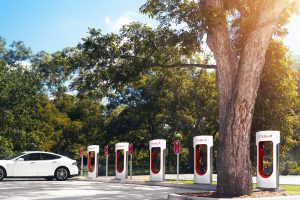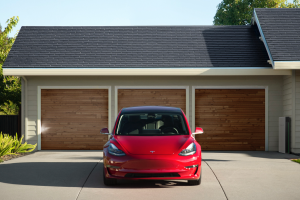As electric vehicle owners, we often field questions from EV-curious drivers, and some of them … let’s just say they highlight the low level of EV awareness among the general public. You may be tempted to respond to your Facebook-educated neighbors with smart-ass answers, but this is unlikely to promote wider EV adoption, so I implore you to answer them patiently and truthfully. With that said, the following imaginary discourse is for entertainment purposes only.
EV-curious friend: What do you do if you run out of charge?
EV owner: What would you do if you ran out of gasoline?
EV-curious friend: Uh … call AAA, I guess.
EV owner: Exactly. That’s what an EV driver would do. When was the last time you ran out of gas?
EV-curious friend: Uh … probably when I was in high school.
EV owner: Right. There’s a wonderful new technology called navigation (well, it’s not really that new), and all EVs have it. It can tell you how many miles you are from your destination. All EVs also have a handy little feature called a range estimator, which tells you roughly how many miles you can drive before recharging. Are you starting to get the picture now?
EV-curious friend: How long does it take to charge?
EV owner: I don’t know.
EV-curious friend: What??? That’s the most important thing about an EV, and you don’t know?
EV owner: Never need to think about it. When I get home in the evening, I plug in, and I have a full battery the next morning. When I’m on a long road trip, I plug into a fast charger, I visit the facilities, I have a cup of coffee, and I’m ready to roll.
EV-curious friend: Is it safe to go through a car wash, or charge in the rain?
EV owner: Would you buy a car that wasn’t safe to use in the rain?
EV-curious friend: No, of course not.
EV owner: Would anybody?
EV-curious friend: Uh … I guess not.
EV owner: Do you know how many EVs were sold globally in 2021?
EV-curious friend: Uh … no.
EV owner: Over 5 million. Does that answer your question?
EV-curious friend: Are EVs really green? I heard that EVs are actually worse for the environment than gas cars. And the media has, like, totally ignored this issue.
EV owner: That’s actually a reasonable question. What you’re talking about is called the “long tailpipe” issue, and it’s been discussed extensively in both scientific journals and mainstream media outlets for the last decade. Everything we do has environmental consequences, and it’s true that producing cars, and generating the electricity that powers them, emits pollutants. Are you very knowledgeable about science?
EV-curious friend: Uh … well, not really, I guess.
EV owner: I’ll explain it anyway. The carbon footprint of any vehicle depends on many factors, but studies have found that, even if powered 100% by coal, the dirtiest fossil fuel, an EV emits less carbon and other pollutants than the average gas vehicle. The lifecycle emissions of an EV, including raw material mining, manufacturing and recycling, have also been shown to be considerably lower than those of a typical fossil-burner. Do you believe me?
EV-curious friend: Uh … Usually if I see something on Facebook, I assume it’s true.
EV owner: You might want to have a little more information. The lower environmental footprint of EVs has been demonstrated by various scientific studies, which you can read about here, here, here, here, here, here, here, here, here, here, here, here, here, here, here, here, here, here, here, here, and here.
EV-curious friend: I’ve heard the batteries wear out after like, five years, and then the car’s worthless.
EV owner: Have you now? Well, all EVs sold in the US come with an 8-year battery warranty (10 years in California), so there is that. Do you know anyone who owns an EV?
EV-curious friend: Uh … no.
EV owner: Well, I do. I know a guy who owns a Tesla with 400,000 miles on it, and another who has racked up 424,000 miles. Apparently, the world record is well over a million kilometers. Yes, these old-timers have had battery replacements. I also know of several shops that do battery repairs and replacements, including one that specializes in Teslas. Replacing a battery is a major expense—like replacing a transmission, which EVs don’t really have—but it’s far from a reason to send the car to the junkyard.
Let’s consider something else. Companies like Tesla, GM, Ford, Volkswagen and Nissan employ thousands of highly skilled engineers to design their EVs, and they’ve invested billions in battery development. What would you call it if it turned out that all those 5 million EV batteries that were sold last year only lasted 8 or 10 years?
EV-curious friend: Uh…that’d be a bummer.
EV owner: Yes. It would also probably be considered the greatest fiasco in the history of the automotive industry, and one of the greatest collective failures in the history of science. Is that really something you think you need to worry about?
EV-curious friend: Well…I guess not.
EV owner: So, what do you think about EVs now?
EV-curious friend: Actually, they sound pretty cool.
EV owner: Would you consider buying one?
EV-curious friend: Uh…no. I lost my license, so I can’t drive.
Originally posted on EVANNEX.
By Charles Morris





